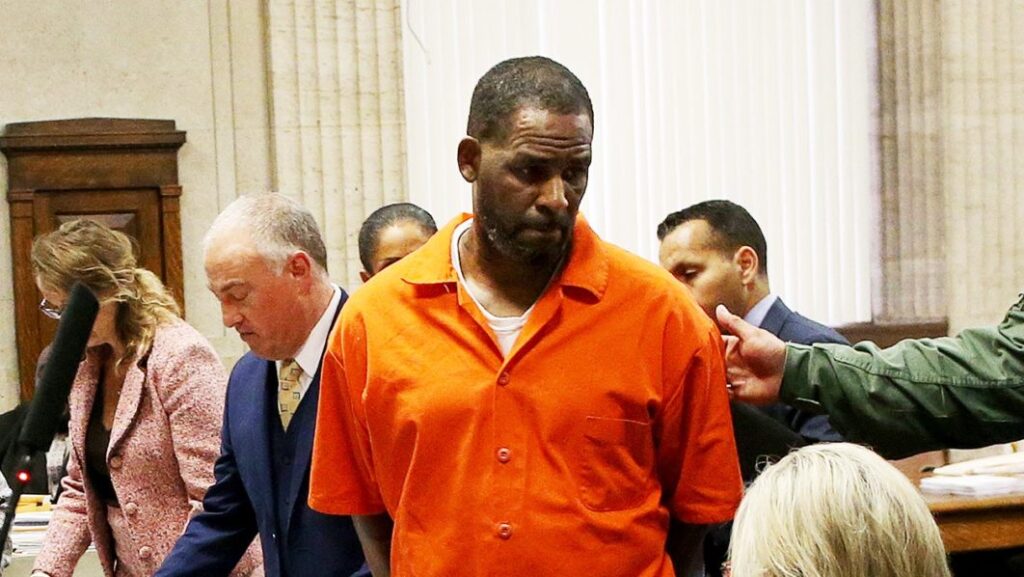R Kelly has been sentenced 30 years in prison in the long-awaited conclusion of his federal sex trafficking case in New York.
The disgraced R&B superstar was sentenced Wednesday, months after he was convicted on all nine counts against him in a high-profile sex trafficking case.
U.S. District Court Judge Ann Donnelly handed down the sentence in a Brooklyn courtroom after several of Kelly’s victims angrily addressed the convicted sex offender at the hearing.
Donnelly minced no words as she threw the book at once-beloved performer.
Read also
- R. Kelly’s fate hangs in balance as jury begins deliberations soon
- R. Kelly’s associate sentenced to 8 years for arson
- R. Kelly Gets $22,000 For One Hour Club Gig
“You were a person who had great advantages — worldwide fame and celebrity and untold money,” she said.
“You took advantage of their hopes and dreams, holding teenagers in your house trapped. You were at the top of your organization and you raped and beat them, separated them from their families and forced them to do unspeakable things.”
Last September, a jury found the disgraced singer guilty of all counts, which included one charge of racketeering related to the sexual exploitation of children, kidnapping, and forced labor, as well as eight charges of violating the Mann Act, which outlaws the transportation of a person across state lines for illegal sexual activity.
Kelly was arrested in 2019 and during his time in jail he’s gone broke, been attacked by an inmate, and complained of gaining weight. This past February he caught COVID-19.
His case has encountered numerous delays and setbacks, most recently when he hired attorney Jennifer Bonjean, who had successfully overturned the conviction against Bill Cosby, and fired the rest of his legal team. On June 14th, Bonjean asked Judge Donnelly to sentence Kelly to the 10-year mandatory minimum.
“Our position is that the mandatory minimum sentence is appropriate in this case,” Bonjean said.
“There is significant mitigating evidence, particularly related to his extremely traumatic childhood that shaped him as an adult.” Bonjean filed this sentencing memorandum under seal, suggesting that the document included intimate details about sexual abuse Kelly suffered as a child.
Meanwhile, prosecutors asked for a sentence exceeding 25 years due to his “long and pervasive history of enticing children to engage in sexual activity.”
In a 31-page sentencing filing, prosecutors wrote, “He lured young girls and boys into his orbit, often through empty or conditioned promises of assistance in developing a career in the entertainment industry or simply by playing into the minors’ understandable desire to meet and spend time with a popular celebrity.”
This is hardly the end of Kelly’s legal troubles. He’ll stand federal trial in Illinois, where prosecutors allege that he helped fix the 2008 trial for child pornography that ended in his acquittal. He’s also facing state charges in Illinois and Minnesota.
Kelly, 55, was convicted in September of racketeering and violating the Mann Act, the law that bans transporting people across state lines “for any immoral purpose.”
The Grammy-winning Kelly, perhaps best known for the 1996 hit “I Believe I Can Fly,” was considered one of the kings of R&B in the 1990s and 2000s and was widely credited with helping to redefine the genre.

